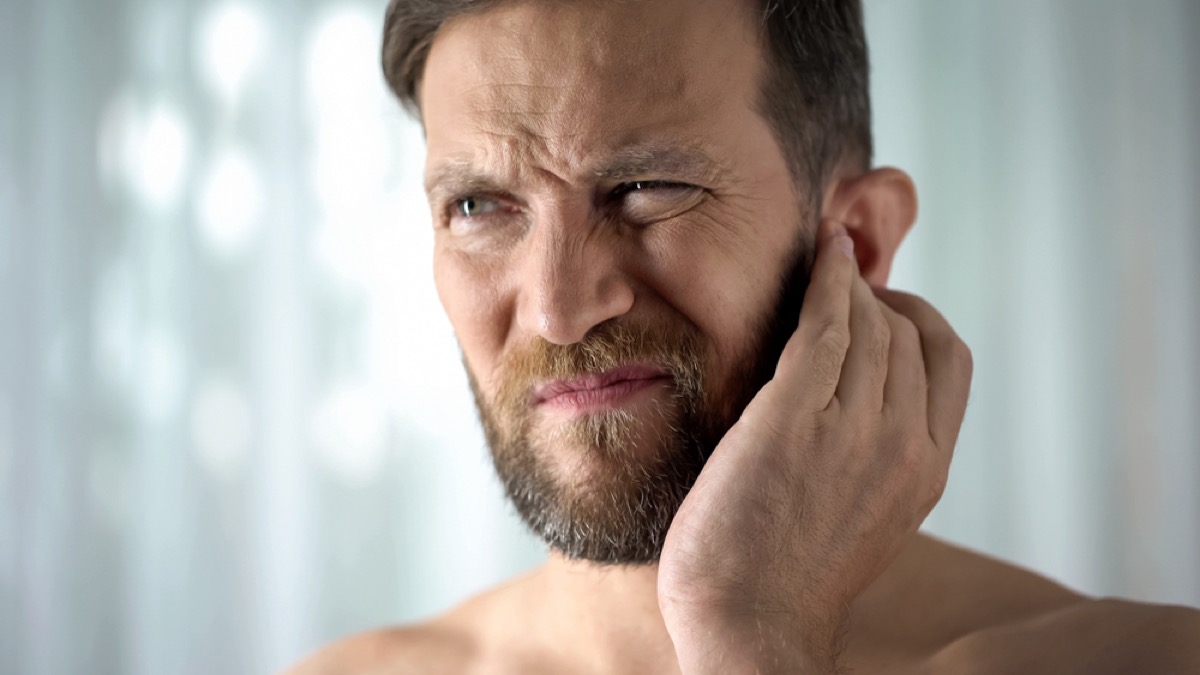Rest assured that hiccups are usually completely harmless. In at least one notable case, however, a man’s persistent hiccups turned out to be a surprising COVID symptom. A July study published in the American Journal of Emergency Medicine reported the case of a 62-year-old man who presented with hiccups that had been going on for four days. Chest X-rays showed that the hiccups were the result of lung inflammation, which turned out to be his sole coronavirus symptom. “This is the first case report of persistent hiccups as the presenting complaint in a COVID-19 positive patient in emergency medicine literature,” the researchers wrote. And for insight into why coronavirus affects certain people more than others, This Is Why Some People Don’t Have COVID Symptoms, New Study Shows. Like hiccups, an itch is not immediate cause for alarm. If your itch presents alongside a rash on your foot, however, it could be a symptom of coronavirus. As vascular nurse Leanne Atkin, PhD, said in a July statement for the University of Huddersfield, itching on the feet could be a sign of a COVID infection, and it’s one that’s often overlooked. But it’s not just the itching of COVID toes that merits a coronavirus test. Rashes in other parts of the body, many of them itchy, are actually a common symptoms of the virus, as multiple studies have shown. And for more signs of coronavirus on your skin, check out these 6 COVID Symptoms That Are Right in Front of You. There are countless causes of hair loss, most of which have nothing to do with coronavirus—though that may be of little comfort to those experiencing it. And yes, it does seem that hair loss can be a complication of COVID, but it appears to be something people experience months after an active infection with the virus. According to WebMD, “The link between hair loss and COVID is just starting to be reported and recognized in research.” In this case, it appears that hair loss may be less a direct symptom of coronavirus, and more the result of a traumatic infection. “You can have this major event, and then it can be about three to five months later that all of a sudden, you start to notice the shedding,” Sara Hogan, MD, a health sciences clinical instructor at the David Geffen School of Medicine at UCLA, told WebMD. “And we’re in the time frame for that with regard to the pandemic.” Doctors now believe that coronavirus can attack your inner ear, and with that comes a variety of possible symptoms, including hearing loss. These findings were revealed in a July research letter published in the journal JAMA Otolaryngology–Head & Neck Surgery after researchers performed autopsies on patients who had died from COVID and discovered the virus in their ears. Based on this study, co-author C. Matthew Stewart, MD, associate professor of head and neck surgery at the Johns Hopkins University School of Medicine, told Newsweek that there could be long-term ear complications from a coronavirus infection. “We hypothesize that potential symptoms could be changes in the character and quality of hearing, balance, ringing, or sensations of fullness or pressure,” he said. And for more up-to-date information, sign up for our daily newsletter. It’s not just numbness—other stroke symptoms could actually be signs of a COVID infection. A study that will be published in the September issue of the Neuroimmunology & Neuroinflammation journal focused on the case of a woman who presented with stroke symptoms, including numbness in her arm, a drooping face, and aphasia. She was tested for coronavirus, despite having no other symptoms, and ended up being positive.ae0fcc31ae342fd3a1346ebb1f342fcb According to CBS News, “The insidious disease quietly caused her body to attack itself, inflaming her brain, paralyzing half of her body, rendering her unable to see or speak, and almost killing her in the process.” And for more neurological symptoms of coronavirus, These Common Symptoms Could Mean COVID Is in Your Brain.




